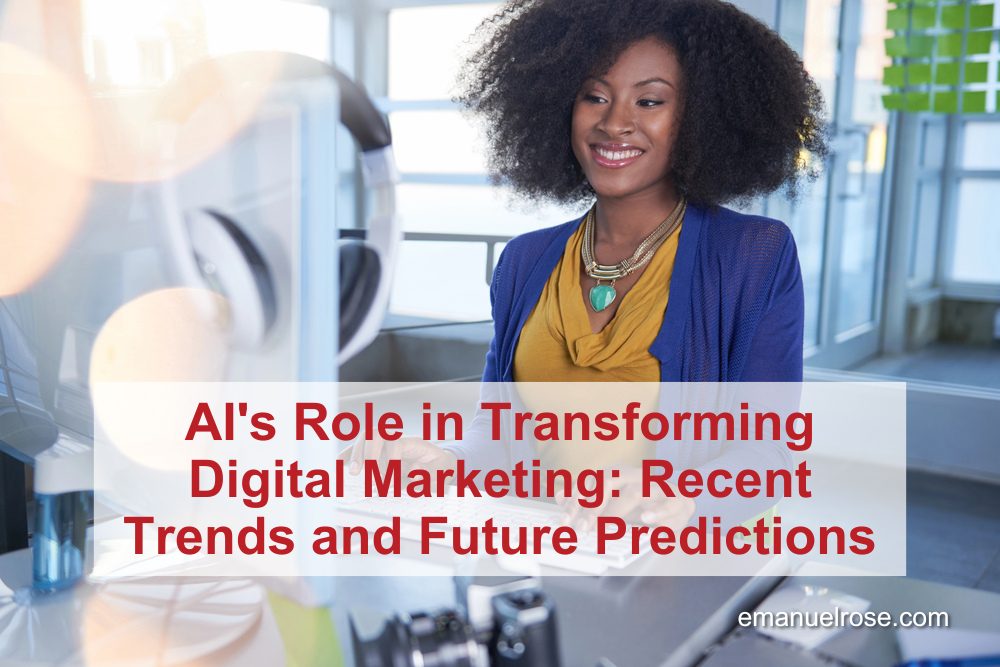Remaining ahead of trends is crucial for effective client outreach and business success in digital marketing. Over the past decade, significant changes in marketing strategies have been driven largely by technological advancements and consumer behavior shifts. A key player in these transformations is artificial intelligence (AI), which has revolutionized how marketers approach their craft.
Diverse Clientele and the Advantages of Not Specializing
Working with a wide array of clients, from e-commerce and contractors to attorneys and other agencies, allows for cross-industry innovations and leveraging universally applicable marketing fundamentals. Despite the traditional advice to niche down, spreading expertise across various sectors can lead to more creative and adaptable marketing strategies.
Referrals play a pivotal role in expanding business scope, with satisfied clients often recommending services to peers across different industries. This organic growth facilitates a varied portfolio and prevents stagnation in a single vertical.
The Impact of AI on Marketing Over the Last 18 Months

The last year and a half have been monumental for AI in marketing. Initially, there was a rush to publish content via tools like ChatGPT, but platforms quickly adjusted, discerning and often penalizing content that was too AI-generated. This shift highlighted the need for human intervention and expertise in prompt engineering—crafting questions or prompts in a way that yields the most effective AI-generated responses.
One significant evolution is the emergence of specialists who refine AI-generated content to sound more human, thereby integrating seamlessly into existing marketing strategies. AI has not replaced the need for human creativity and oversight; rather, it has enhanced it, enabling marketers to produce high-quality, engaging content more efficiently.
Real-Time Search Leads and Intent-Based Marketing
Innovative solutions such as real-time search leads and website search leads leverage AI to follow consumers’ online behavior. By tracking potential customers’ search activities, businesses can gain valuable insights and target individuals who exhibit intent to purchase. This method uses AI more as an enhancement tool rather than a replacement, tailoring follow-up strategies to increase relevance and conversion rates.
For example, a diabetes-related company utilized these technologies to identify individuals looking to sell unused medical equipment. By honing in on these specific needs, the company achieved significant returns on investment, demonstrating the power of real-time data in refining marketing efforts.
Enhancing Google Business Profiles with Strategic SEO
Ranking high in local search results, particularly in the Google Maps three-pack, is vital for businesses wanting to capture local leads. Elevating clients to this coveted spot includes leveraging Google’s own properties such as YouTube for backlink building, creating a self-sustaining ecosystem of traffic that boosts profile rankings. This tactic ensures high-quality, long-lasting backlinks, which are crucial for maintaining search engine visibility.

Using a network of interlinked websites, traffic is driven strategically to amplify the web presence of client profiles, benefiting from the credibility and authority of established platforms like YouTube. Such innovative SEO strategies can place local businesses in a highly visible position, driving traffic and potential sales significantly.
Anonymous Visitor Profiling
Anonymous visitor profiling involves capturing and utilizing data from visitors who do not convert on initial website visits. By embedding specific code, businesses can identify these visitors and purchase their contact information from data warehouses. This method allows businesses to reach out directly to those who have shown interest but not yet engaged, significantly increasing engagement rates and potential sales.
Emails sent to these contacts boast open rates upwards of 50%, with click-through rates following closely. This approach turns previously cold prospects into warm leads, thanks to their prior visit and interest, making follow-up communications more effective and personalized.
The Future of Marketing: Real-Time and AI-Driven Personalization

Looking ahead, the future of marketing is envisioned where real-time, intent-based strategies are the norm, spurred by advancements in AI and data acquisition technologies. The ability to deliver hyper-personalized ads and communications instantly as users interact with online content mirrors scenarios from science fiction, such as the movie “Minority Report.”
Although full integration into daily life is still on the horizon, significant strides have already been made.
As AI evolves, its role will likely deepen, providing marketers with tools to craft highly specific campaigns that anticipate consumer needs and behaviors nearly as they happen. The integration of neural network technologies and behavioral data will further refine these capabilities, creating a seamless and responsive marketing environment.
Keeping up with the rapidly changing world of digital marketing means embracing technological advancements like AI while maintaining the essential human touch that keeps content engaging and relatable. By utilizing innovative strategies and continuously adapting to new tools, marketers can ensure that their campaigns remain effective and relevant.

